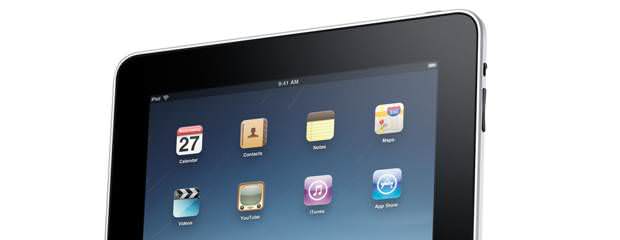
PC Market Continues to Melt
U.S. research research firmGartner Inc.(IT) recently announced that worldwide PC unit shipments declined 0.1%year over year to 87.5 million units in the second quarter offiscal 2012. Shipments were as well below the prior quarter level.Worldwide shipments while the first quarter were 89 million units.The past several quarters have seen significant uncertainty in thePC market. The popularity of then-generation ultra-portable gadgets(mainly tablets and smartphones) has taken the market by storm,diverting consumer spending from traditional desktops andnotebooks. Additionally, the much-hyped ultrabooks -- the straightway-genlaptop -- have failed to woo end-users, as expected.Gartner estimates indicate thatHewlett-Packard Co.(HPQ) saw unit shipments slipping 12.1%, the worst amongst the PCvendors worldwide. H-P was followed byDell Inc.(DELL) with an 11.5% decline. All in all, impressive performances byLenovo, Acer Group and ASUS provided some support to the metrics.In terms of market share, H-P maintained its world leadership with14.9%, closely followed by Lenovo. Dell lost its thirdposition to Acer Group, ending up fourth with a marketshare of 10.7%.In the domestic market, H-P led with a 25.0% share, followed byDell with 21.7% andApple Inc.(AAPL) with 12.0%. Nevertheless Apple saw the strongest year-over-year growth at4.3%, handily beating H-P and Dell.Considering the above scenario, we believe that H-P has plenty ofreason to worry. During Asian vendors are stiffening competition inthe world market, Apple is making life difficult at home. Duringthe first quarter, Apple's share in the market was just 10.6%compared to H-P's 29.0%.Technology firm IDC as well shares the same opinion as Gartner.According to IDC, the decrease in unit shipments came below itsconservative projection of 2.1% growth.The Ripple EffectThe weakness in the PC market has as well affected other companies.Some other OEMs and alliedindustries which have their fortunes tied to the industry have alsobeen in accordance with pressure.H-Premains cautious about the global environment for both consumer andcommercial spending for its PC segment. Management also expects thepricing environment to remain competitive. Hence, it has decidednot to provide quantitative revenue or segment-level outlooks.H-P initiated a number of strategies to deal with the poorlyperforming PC segment. New product launches, the decision to spinoff the segment, and the merger of its PC andprinter divisions are worth-mentioning.Yet the strategies did not work out properly, probably due to thepersistent weakness in IT spending. In order to deal with thesituation, H-P announced a major restructuring program focusing onreducing the cost structure and realigning the work force to createinvestment capacity, support growth initiatives and technology, andenable more effective operations globally.
H-P intends to reinvest the majority of savings from head countand non-head count related actions in its business to fosterinnovation, particularly in cloud, big data analytics, informationmanagement and security.Dellexpects a 2-4% sequential revenue growth, much of which is expectedto come from servers and storage products. At its analyst day heldin June, Dell announced a $2.0 billion cost cutting program overthe then three years.
The idea behind the cost-cut is mainly to shift focus from thetraditional computing business to a high-margin enterprise-classsoftware and services market. Dell has as well acquired a number ofcloud and software vendors over time to solidify its position inthe enterprise-solutions vertical.The lackluster PC market is forcing the two key players to shifttheir focus from the traditional business. These tech giants arefollowing the trend set up byIBM Corp.(IBM), which offloaded its PC unit to China's Lenovo Group Ltd. in2005.Yesterday, Asian PC manufacturer,Acerreduced its growth forecast for fiscal 2012. Nevertheless the company issomewhat optimistic about the release ofMicrosoft Corp.'s Windows 8 operating system. The offering could boost PC sales inthe coming quarters.Analysts are of opinion that chip-makerIntel Corp.(INTC) may face challenges to meet its guidance for the second and thirdquarters of fiscal 2012, owing to the sluggish PC market. Intel didnot slash its guidance yet the shares dropped 3.2% post Gartner'sannouncement.Last week, Intel's archrivalAdvanced Micro Devices Inc.(AMD) lowered its second quarter sales expectations, citing weak demandin China, sovereign debt issues in Europe, as then as a sluggishU.S. personal computer market.Microsoft has as well announced cost cuts by way of headcountreduction. The decision was largely based on Gartner's announcementof slowing PC sales.Apart from the companies mentioned above, there are some othersthat could be affected by the soft PC market. Hard disk drivemakersSeagate Research plc(STX),Western Digital Corp.(WDC) and graphic chip-makerNVIDIA Corp.(NVDA) are worth mentioning.ConclusionThough the current scenario looks terrible, we believe that anyimprovement in macroeconomic conditions and Euro issues could boosttech spending going forward. As well, the release of Windows 8 couldhave a positive impact on PC sales.Recently, Gartner predicted that global spending for informationtechnology products and services will increase 3.0% year over yearto $3.6 trillion in 2012. The projection surpasses the 2.5% growthexpectations provided before this year.To conclude, we think that aggressive pricing by Asus and Lenovoand Microsoft's upcoming tablet, Surface, could put H-P and Dellunder even greater pressure. The bets appear to be on theirultrabook offerings, where initial reaction appears softer thanexpected.Currently, H-P, AMD, Apple and Microsoft hold a Zacks Rank of #3,implying a short-term Hold recommendation. Intel has a Zacks Rankof #4, implying a short-term Sell recommendation. Dell has a ZacksRank of #5, implying a short-term Strong Sell recommendation.
- · Rackspace debuts OpenStack cloud servers
- · America's broadband adoption challenges
- · EPAM Systems Leverages the Cloud to Enhance Its Global Delivery Model With Nimbula Director
- · Telcom & Data intros emergency VOIP phones
- · Lorton Data Announces Partnership with Krengeltech Through A-Qua⢠Integration into DocuMailer
